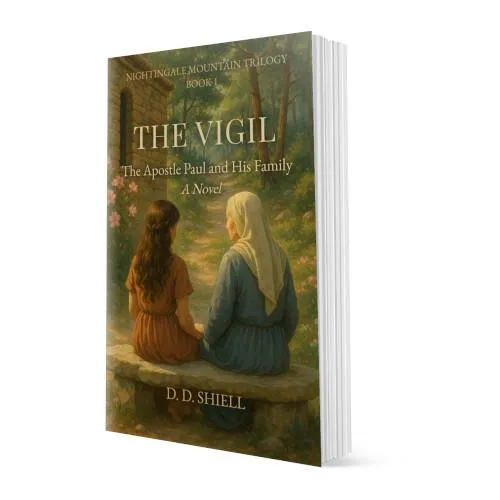
The Vigil - Book 1 Release Date
The Vigil: A Fresh Dawn for the Nightingale Mountain Trilogy
With palpable excitement among readers of faith-driven historical fiction, The Vigil has arrived as the inaugural installment of the Nightingale Mountain Trilogy by D. D. Shiell. Released in September 2025, this novel promises to weave together devotion, drama, and the dawn of a new generation in the early Christian era.

A Dual Narrative: Rachel and Saul, Voices Across Time
What sets The Vigil apart is its ambitious structure: two narrative threads that slowly converge. On one side is Rachel, a young woman coming of age on the slopes of Nightingale Mountain near Ephesus. She yearns for love, belonging, and purpose—drawn into the circle of Mary (the mother of Jesus) and John the Evangelist. Yet her father’s hidden past threatens what she hopes might be a peaceful future.
On the other side is Saul of Tarsus, zealot and persecutor of the early Christians, whose life is on a collision course with transformation. His journey down the road to Damascus — from persecutor to apostle — forms one of Christianity’s most dramatic turning points, and Shiell renders it afresh from the inside out.
The alternating perspectives allow the novel to explore both the internal world of faith and doubt, and the external, volatile world of the 1st-century Mediterranean. Because Rachel and Saul’s stories unfold in tandem, readers witness the tension of a faith community evolving as well as the costs and courage of discipleship.
Themes That Echo Through Time
1. Memory and Witness.
Rachel lives in the shadow of the apostles. Her role is sometimes passive, sometimes observant, but always attentive. Her responsibility: to remember, to witness the stories that shape the nascent Christian communes, and to carry them forward. Her narrative raises the question: who remembers, and who tells the stories that define a generation?
2. Transformation and Identity.
Saul’s path is, at first, antithetical to the Christian message; but his transformation is central to the new identity of “the way.” The Vigil asks: what does it cost to change? How do faith, conviction, and conflict reshape identity?
3. Intersections of Lives.
Though Rachel and Saul begin in distant orbits, their lives intersect in unexpected ways. The novel invites readers to see Christian history not as isolated biographies but as a tapestry: communities, conversations, and relationships woven across distances.
4. Faith in Transition.
Set in the nascent decades of the Church, the story grapples with questions of leadership, authority, suffering, and legacy. The Vigil explores how the earliest followers of Jesus learned to endure loss, treasure memory, and embrace mission in a changing world.
Why The Vigil Matters
A compelling voice for the next generation. Rachel offers a fresh vantage point—neither apostle nor persecutor, but someone caught in the shifting currents of faith. Her voice affirms that the next generation’s listening, asking, and wrestling are part of how faith perseveres.
Historical fidelity with imaginative depth. Shiell anchors her novel in the known contours of early Christian history while giving imaginative life to those margins—the spaces between recorded events, where personal lives turn.
A story of connection, not isolation. Instead of compartmentalizing spiritual struggles and historical drama, The Vigil bridges them—showing how theology, community, politics, and personal lives are interwoven.
A strong foundation for trilogy potential. As Book 1 of the Nightingale Mountain Trilogy, The Vigil not only tells a compelling first act but primes readers for what comes next: how memory, legacy, and mission.
Leads to Look Forward To (Without Spoilers)
New friendships and alliances, especially between Rachel and the figures of Mary and John, deepen her understanding of sacrifice, hope, and calling.
For Saul, his conversion is only the beginning. The aftermath, the backlash, the responsibilities of his new role—these will test everything he understands.
The ripples from their worlds will reach outward: into the communities beyond Ephesus, into the conflicts of identity and belonging, and into how the fledgling Christian movement navigates persecution, leadership, and growth.
Final Thoughts: A Vigil Worth Keeping
The Vigil feels like more than a debut—it’s a commitment. It commits readers to the slow reckoning of faith in historical context. It commits the narrative to listening deeply—to the voices in the margins, the young, the interim generation. And it commits a trilogy to exploring how faith is handed down, contested, and carried forward.
For those who love historical Christian fiction, or who delight in seeing how personal lives intersect with epochal change, The Vigil is a compelling entrance into a fresh, evocative story. It promises more in the volumes to come—and already leaves us wanting to sit in Rachel’s footsteps, to walk Saul’s roads, and to keep vigil for what breakthroughs and losses lie ahead.